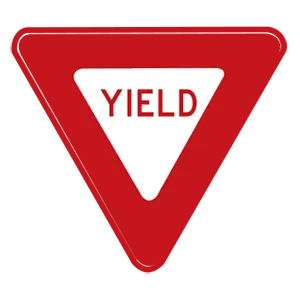Motorcycle Test | License NJ 2026 | FREE Online Practice! #8 Page 2 of 7
Take this FREE motorcycle test (license in NJ 2026) to check your knowledge of the road rules. To improve your results, download a motorcycle handbook online, study theory, and practice for free on our website. Still worried about how to get a motorcycle license in New Jersey in 2026? Check our website for more sample tests, train as much as possible, and boost your grades!
8 . To prevent fatigue when riding on long trips, you should:
When taking a long trip, be sure to schedule in frequent breaks to rest, even if you do not feel tired. Experienced operators seldom try to ride for longer than six hours a day. Wind, cold, and rain can make you tire quickly, so be sure to dress to protect yourself from the elements.
9 . Passengers should:
Before riding while carrying a passenger, you should instruct your passenger to lean with you through turns and curves. They should hold onto your waist, hips, or belt.
10 . What can you do to increase your chances of being seen at an intersection?
To increase your chances of being seen at an intersection, use your headlight and ride in a lane position that creates the best view of oncoming traffic. Maintain a space cushion around your motorcycle that allows you to take evasive action.
11 . An experienced rider:
Unlike drivers of larger vehicles, a motorcyclist has three lane position options in their travel lane. The rider should select whichever position is safest based on road and traffic conditions.
12 . Where is the horn button usually located?
Make sure that you are aware of the locations of all your motorcycle's controls before beginning to ride. The horn button on a motorcycle is usually located next to the left handgrip.
13 . Your lane position should:
A properly chosen lane position should provide a number of benefits, including an increased ability to see others and to be seen. It should help you avoid wind blasts, other drivers' blind spots, and surface hazards. Your lane position should discourage other drivers from trying to share your lane and provide you with an escape route, should a hazard arise.
14 . This sign means:

Traffic signs with three sides of equal length warn drivers to slow down when approaching an intersection and to be prepared to come to a complete stop to yield to other drivers or pedestrians. Drivers may proceed when it is safe to do so.
See the exact questions that will be on the 2026 New Jersey DMV exam.
99.2% of people who use the cheat sheet pass the FIRST TIME
Jeneen was tired of paying $5/gallon. She got herself a scooter that required the motorcycle license. She studyed the motorcycle test cheat sheet and passed her test the next day!
Christopher tells us how he knew nothing prior to obtaining the motorcycle study guide, and he only got one question wrong because he clicked on the wrong answer by mistake.



